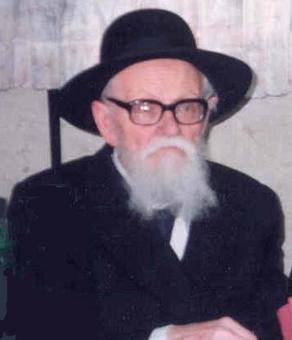The legal status of transgender people varies greatly around the world. Some countries have enacted laws protecting the rights of transgender individuals, but others have criminalized their gender identity or expression. In many cases, transgender individuals face discrimination in employment, housing, healthcare, and other areas of life.
Gender-affirming surgery (GAS) is a surgical procedure, or series of procedures, that alters a person's physical appearance and sexual characteristics to resemble those associated with their identified gender. The phrase is most often associated with transgender health care and intersex medical interventions, though many such treatments are also pursued by cisgender and non-intersex persons. It is also known as sex reassignment surgery (SRS), gender confirmation surgery (GCS), and several other names.
The World Professional Association for Transgender Health (WPATH), formerly the Harry Benjamin International Gender Dysphoria Association (HBIGDA), is a professional organization devoted to the understanding and treatment of gender identity and gender dysphoria, and creating standardized treatment for transgender and gender variant people. WPATH was founded in 1979 and named HBIGDA in honor of Harry Benjamin during a period where there was no clinical consensus on how and when to provide gender-affirming care.
The Standards of Care for the Health of Transgender and Gender Diverse People (SOC) is an international clinical protocol by the World Professional Association for Transgender Health (WPATH) outlining the recommended assessment and treatment for transgender and gender-diverse individuals across the lifespan including social, hormonal, or surgical transition. It often influences clinicians' decisions regarding patients' treatment. While other standards, protocols, and guidelines exist – especially outside the United States – the WPATH SOC is the most widespread protocol used by professionals working with transgender or gender-variant people.

Christine Jorgensen, born George William Jorgensen Jr., was an American actress, singer, recording artist, and transgender activist. A trans woman, she was the first person to become widely known in the United States for having sex reassignment surgery.

A trans man is a man who was assigned female at birth. Trans men have a male gender identity, and many trans men undergo medical and social transition to alter their appearance in a way that aligns with their gender identity or alleviates gender dysphoria.
Masculinizing gender-affirming surgery for transgender men or transmasculine non-binary people includes a variety of surgical procedures that alter anatomical traits to provide physical traits more comfortable to the trans man's male identity and functioning.
Feminizing Gender-affirming surgery for transgender women or transfeminine non-binary people describes a variety of surgical procedures that alter the body to provide physical traits more comfortable and affirming to an individual's gender identity and overall functioning.
The history and subculture surrounding transgender people in Singapore is substantial. As with LGBT rights in the country in general, transgender rights in Singapore have also evolved significantly over time, including various laws and public attitudes in regards to identity documents, as well as anti-discrimination measures used by or pertaining to transgender people, in the areas of employment, education, housing and social services, amongst others.

Eliezer Yehuda Waldenberg was a rabbi, posek, and dayan in Jerusalem. He is known as a leading authority on medicine and Jewish law and referred to as the Tzitz Eliezer after his 21-volume halachic treatise covering a wide breadth of halacha, including Jewish medical ethics, and daily ritual issues from Shabbat to kashrut.

Transgender rights in Iran are limited, with a narrow degree of official recognition of transgender identities by the government, but with trans individuals facing very high levels of discrimination, from the law, the state, and from wider society.
Stanley H. Biber was an American physician who was a pioneer in sex reassignment surgery, performing thousands of procedures during his long career.

Toby R. Meltzer is an American plastic and reconstructive surgeon. Meltzer specializes in sex reassignment surgery male-to-female, sex reassignment surgery female-to-male, and facial feminization surgery. In the 1990s, Meltzer pioneered the neovaginal construction technique that increased the ability of the neoclitoris to feel sensations. According to his website, Meltzer performs 2-4 vaginoplasties a week, and that he has performed over 3000 male and female sexual reassignment (SRS) surgeries. Joan Roughgarden called Meltzer one of the leading surgeons in this specialized field. He practices in Scottsdale, Arizona.
Georges Burou was a French gynecologist who managed a clinic in Casablanca, Morocco, and is widely credited with innovating modern sex reassignment surgery for trans women.
Marci Lee Bowers is an American gynecologist and surgeon who specializes in gender-affirming surgeries. Bowers is viewed as an innovator in gender confirmation/affirmation surgery, and is the first transgender woman to perform such surgeries.
Mak Nyah, alternatively spelled maknyah, is a Malay vernacular term for trans women in Malaysia. It arose in the late 1980s in order to distinguish trans women from other minorities.

A transsexual person is someone who experiences a gender identity that is inconsistent with their assigned sex, and desires to permanently transition to the sex or gender with which they identify, usually seeking medical assistance to help them align their body with their identified sex or gender.
The real-life experience (RLE), sometimes called the real-life test (RLT), is a period of time or process in which transgender individuals live full-time in their identified gender role in order to be eligible to receive gender-affirming treatment. The purpose of the RLE has been to confirm that a given transgender person could function successfully as a member of said gender in society, as well as to confirm that they are sure they want to live as said gender for the rest of their life. A documented RLE was previously a requirement of many physicians before prescribing gender-affirming hormone therapy, and a requirement of most surgeons before performing gender-affirming surgery.
Baptist Medical Center may refer to:
The legal status of gender-affirming surgery and gender-affirming hormone therapy varies by jurisdiction, often interacting with other facets of the legal status of transgender people. Key considerations include whether people are allowed to get such surgeries, at what ages they are allowed to if so, and whether surgeries are required in order for a gender transition to be legally recognized. As of 2007, the countries that perform the greatest number of gender-affirming surgeries are Thailand and Iran.






